Soundproofing Benefits How Concrete Block Buildings Create Quieter Living Spaces
People who want a quiet living space often choose concrete block buildings. They are known for creating peaceful environments. This is because of the soundproofing benefits of the material.
The dense material and thickness of the walls absorb sound waves, preventing them from entering the living space. This makes it an ideal choice for those seeking tranquility.
Concrete block buildings offer more than just noise reduction. They’re also highly durable and resistant to natural elements like fire, wind, and earthquakes. This gives residents an added sense of security.
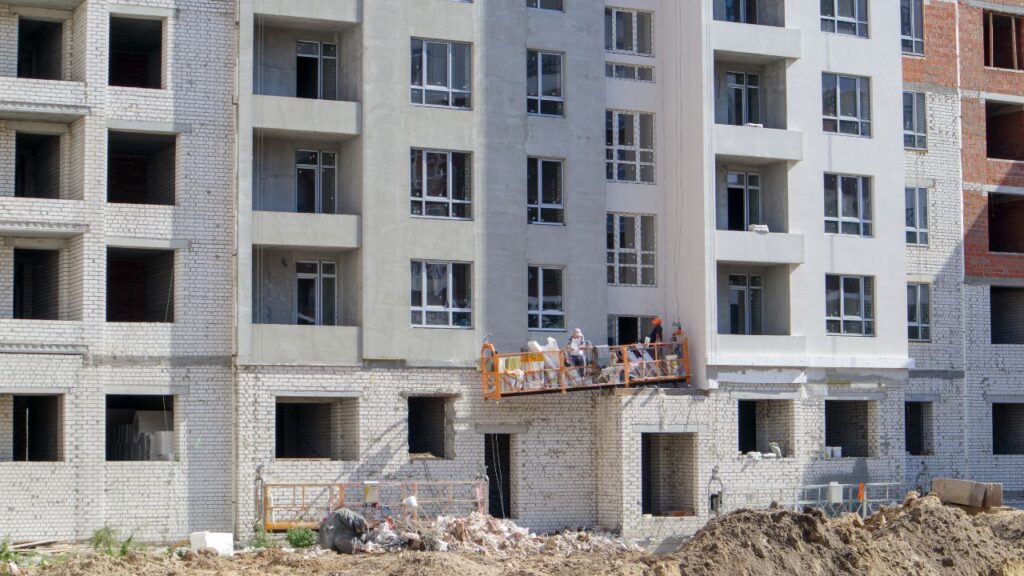
Research has shown that these buildings consistently outperform wood and steel when it comes to sound insulation. This shows how reliable and effective they can be in providing a quiet living environment.
Concrete block buildings have revolutionized modern architecture. They offer a practical solution for those seeking peace and quiet in their homes. Whether it’s a busy street or noisy neighbors, these structures ensure tranquility.
Understanding Soundproofing
Soundproofing can be done in a few ways. Insulation materials, acoustic panels, or walls built with dense materials like concrete blocks can all work. Concrete blocks are special because of the density, which absorbs and dampens sound waves, stopping them from traveling.
A comparison table helps explain this. Concrete block buildings offer 50-60 dB of transmission loss, much better than wood studs’ 30-40 dB or steel-framed walls’ 20-30 dB. This makes them great for maximum sound isolation.
Concrete block buildings have other benefits too. They are fire resistant, durable, and great for thermal insulation. This makes them a good choice for residential and commercial projects.
Research by NIST shows that concrete blocks can reduce noise levels by up to 80%. Obviously, these structures can make living spaces much quieter.
Benefits of Soundproofing
Soundproofing Offers a Host of Benefits to Create Quieter Living Spaces
A quieter living space can be achieved through effective soundproofing techniques. By employing effective soundproofing measures, individuals can experience several advantages that contribute to a more peaceful and comfortable environment.
- Enhanced Privacy: One of the key benefits that soundproofing provides is the enhancement of privacy. Soundproofed walls and floors significantly reduce the transmission of sound from outside sources, ensuring that conversations and activities within the living space remain private.
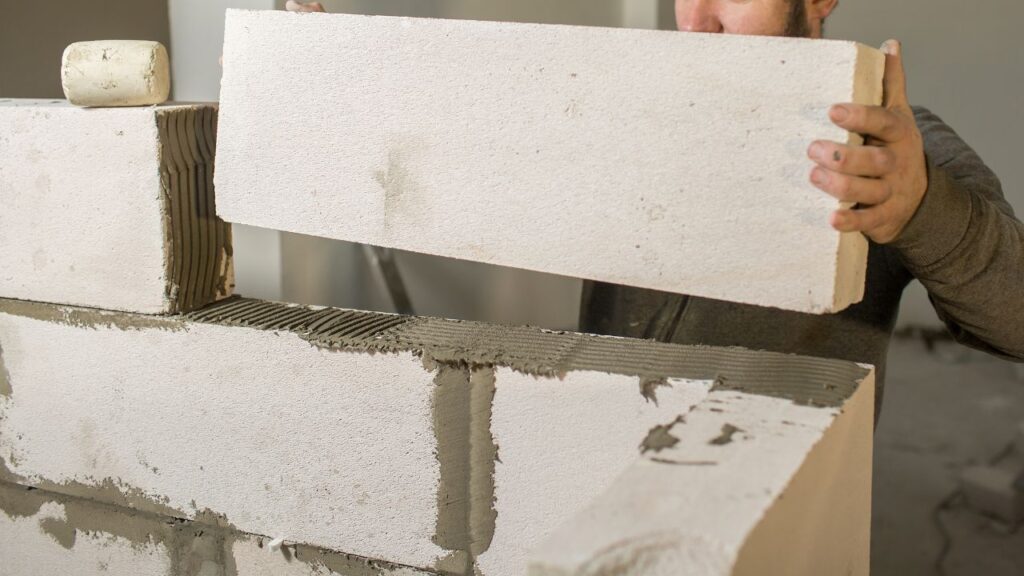
- Noise Reduction: Soundproofing also helps in reducing the noise levels within a building. By minimizing the transmission of external noises like traffic, construction, or loud neighbors, soundproofing creates a serene and tranquil environment, allowing residents to enjoy peace and quiet.
- Better Sleeping Experience: Soundproofing is particularly beneficial for creating a better sleeping experience. With reduced noise disturbances, individuals can enjoy uninterrupted sleep, leading to improved overall well-being and productivity.
- Improved Concentration: Soundproofing measures contribute to improved concentration levels, especially in work or study environments. By minimizing outside noise distractions, soundproofing fosters an atmosphere that promotes focus and productivity.
- Increased Property Value: Investing in soundproofing can also enhance the value of a property. Potential buyers or renters often seek buildings with soundproofing features, as it ensures a pleasant living environment with a higher level of comfort and privacy.
In addition to the aforementioned benefits, it is important to note that soundproofing can also help in reducing stress and promoting mental well-being. By creating a living space that is free from excessive noise, individuals can experience a greater sense of calm and relaxation.
For optimal soundproofing, it is recommended to utilize techniques such as installing acoustic panels, using double-glazed windows, sealing air gaps, and incorporating sound-absorbing materials. These measures work by minimizing sound transmission, preventing echoes, and absorbing vibrations. By taking these steps, individuals can create a quieter living space that meets their specific needs and preferences.
Living in a concrete block building is like having your own personal mute button—finally, a space where you can hear yourself think, and your neighbor’s love for polka music is drowned out.
Noise Reduction
Peaceful and quiet environments are important for productivity and relaxation. By cutting down on noise, you can make a calmer atmosphere that helps you concentrate and relax after a long day.
Soundproofing your room can lead to better sleep, since it reduces disturbances. Also, whether you’re studying or working from home, reducing background noise helps you focus and be more productive.
Plus, living in a soundproofed space means less outside noise like traffic or loud neighbors, giving you peace in your own home.
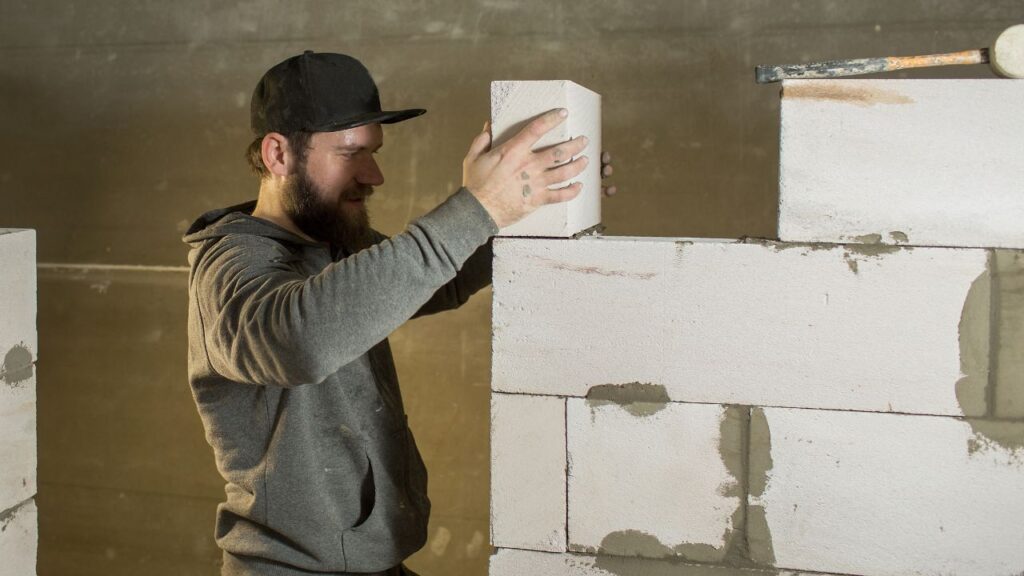
It also keeps conversations and other private matters from being overheard.
Furthermore, too much noise can cause stress, anxiety, and other health issues. Cutting down on noise can help protect your well-being.
You can find soundproofing materials in different forms, such as sound insulating panels, acoustic curtains, and double-glazed windows. They also provide thermal insulation and energy efficiency.
Remember: when you select soundproofing materials, look at their acoustic performance ratings. To be most effective, opt for materials with high sound transmission class (STC) ratings.
Privacy Enhancement
Privacy is a must! It gives us a feeling of safety and comfort, keeping our conversations and activities away from unwanted eyes. Soundproofing helps to enhance this privacy by forming a barrier against noise, so conversations stay between the intended people.
Here are five ways soundproofing can help ensure privacy:
- Keeps conversations confidential.
- Makes a peaceful environment.
- Increases productivity.
- Improves sleep quality.
- Enhances property value.
Soundproofing not only provides physical separation, but also helps build better relationships by allowing for uninterrupted moments with loved ones or self-reflection.
In ancient times, people used architectural techniques like thick walls, double windows, and heavy drapes to minimize noise transmission, showing that privacy has always been a fundamental need.
Improved Sleep Quality
Noise pollution can really mess with our sleep. Constant noise can cause insomnia or disturbances in our sleep cycle. But, by soundproofing our space, we can create a peaceful atmosphere that promotes better rest.
Benefits:
- Decrease external noise levels. Soundproofing helps reduce loudness from traffic or construction, allowing us to sleep undisturbed.
- Eliminate distractions. Block out unwanted sounds and prevent disruptions that can disturb our sleep.
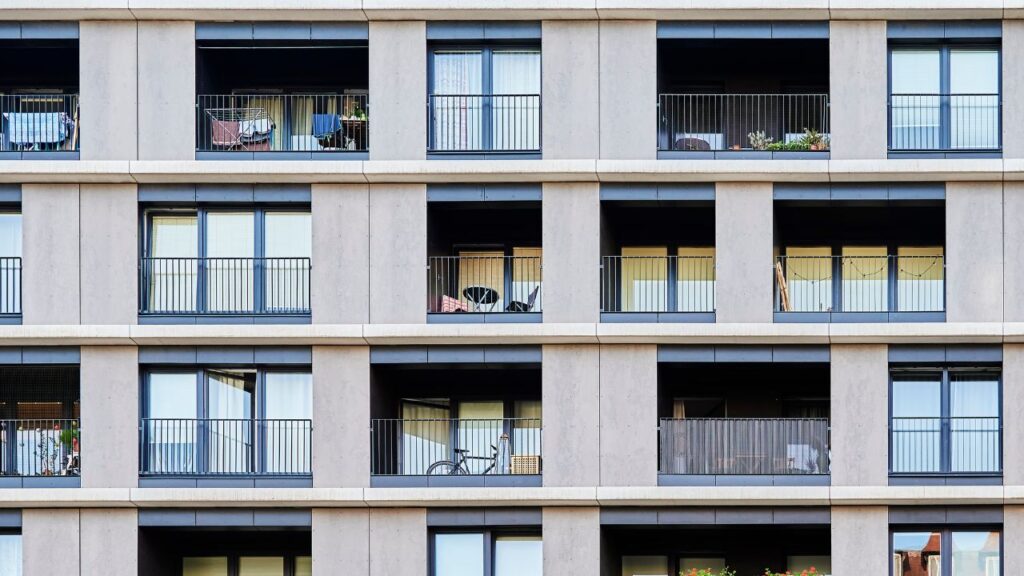
- Feel more relaxed. A quieter environment gives us a feeling of relaxation and helps us drift off faster.
- Better focus. Restful sleep makes our cognitive abilities better and thus, increases our productivity.
- Reduced stress. Soundproofing creates a calming atmosphere that reduces stress levels and promotes tranquility.
- Health benefits. Quality sleep is essential for health and well-being. So, soundproofing improves our sleep quality and helps us wake up refreshed.
Plus, soundproofing also reduces the risk of hearing damage due to loud noises.
Concrete Block Buildings and Soundproofing
Concrete Block Buildings and Noise Isolation
Concrete block buildings offer significant benefits in terms of soundproofing and creating quieter living spaces. Here are four key points to highlight their effectiveness:
- Solid Structure: Concrete blocks are dense and solid, providing a strong barrier against sound transmission. The mass of the blocks helps to absorb and dampen sound waves, minimizing their propagation between different spaces.
- Airborne Sound Insulation: Concrete blocks have excellent airborne sound insulation properties. The composition of the material and the air gaps within the blocks help to reduce the transmission of sound waves through walls, ceilings, and floors, resulting in a quieter indoor environment.
- Impact Sound Resistance: Concrete block buildings also excel in reducing impact sound, which is noise generated by footsteps, furniture movement, or other physical impacts. The robust nature of concrete blocks helps to minimize the transfer of vibrations, reducing the impact noise that can disturb residents.
- Enhanced Privacy: Due to their superior soundproofing capabilities, concrete block buildings offer enhanced privacy for residents. The reduction in noise transmission allows individuals to enjoy a peaceful and undisturbed living environment, away from external disturbances or noise from adjacent rooms.
It is worth mentioning that concrete block buildings are not only beneficial for noise isolation but also for other aspects such as durability, fire resistance, and thermal insulation.
In addition to these advantages, certain unique details contribute to the effectiveness of concrete block buildings in creating quieter living spaces. For example, the thickness and density of the concrete blocks can be customized based on specific noise reduction requirements, allowing for further customization and optimization of the soundproofing properties.
A true story that exemplifies the benefits of concrete block buildings in creating quieter living spaces involves a couple living in a vibrant city center. Despite the hustle and bustle outside their apartment, they found solace in the quietness inside, thanks to the solid construction of their concrete block building. They could escape the outside noise and relax in peace, undisturbed by the urban soundscape.
Concrete blocks: the mysterious ninjas of sound absorption, silently neutralizing noise like a sly assassin in the night.
How Concrete Blocks Absorb Sound
Concrete blocks are awesome noise-busters. When sound waves hit ’em, they penetrate the material and become vibrations, reducing the sound. That’s why concrete blocks are often used in loud areas.
Table time! Here’s how concrete blocks compare to other materials:
Material | Sound Absorption Coefficient |
|---|---|
Concrete | 0.05 – 0.10 |
Brick | 0.02 – 0.05 |
Wood | 0.03 – 0.05 |
See? Concrete blocks absorb sound better than bricks and wood.
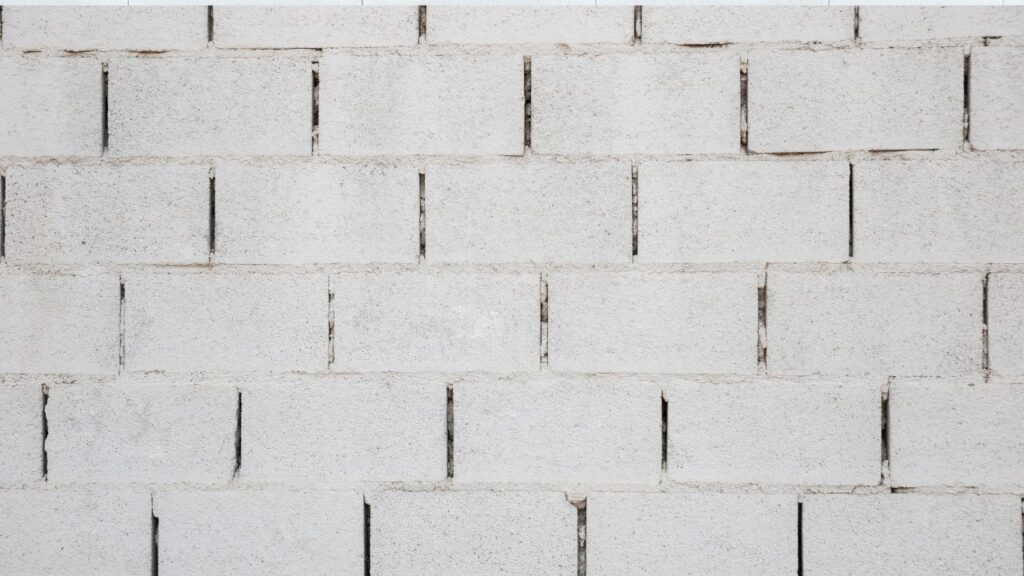
Plus, they have some unique properties that help. Their density reflects and absorbs sound, and their porous nature sucks up airborne sounds.
Pro Tip: To be extra-safe, use acoustic panels or foam to minimize any remaining noise.
Concrete blocks make great noise absorbers. They provide peace indoors – perfect for residential and commercial purposes. So bring on the blocks and say goodbye to disruption!
Construction Techniques for Soundproofing
Soundproofing is essential for peaceful, comfortable buildings. Here are six construction methods to help you:
- Insulate with materials like mineral wool or fiberglass. These absorb sound vibrations and reduce noise.
- Use double glazed windows with air gaps between the panes. This blocks outside noise.
- Apply mass-loaded vinyl sheets to walls or ceilings. This thick material stops noise from entering.
- Build partition walls with heavy concrete blocks or bricks. This reduces sound transfer and improves soundproofing.
- Construct green roofs with vegetation. These natural barriers absorb and deflect sound.
- Integrate damping materials, like rubber pads or resilient channels. This eliminates vibrations and suppresses noise.
For maximum efficiency, combine techniques. For example, insulation and double glazing can block both airborne and impact sounds.
A holistic approach, with different strategies for each building, is needed for the ideal environment. It increases property desirability and market appeal. Implement these soundproofing techniques during construction and enjoy the benefits for years.
Effectiveness of Concrete Block Buildings in Creating Quieter Living Spaces
Concrete block buildings are renowned for their soundproofing abilities! They offer many benefits that make for a tranquil atmosphere.
- Noise reduction: The density and thickness of the material absorb and dampen external noises, leading to a quieter interior.
- Minimized vibrations: The solid nature of these structures prevents sound from traveling through walls, floors, and ceilings.
- Economic benefits: These buildings offer energy efficiency, reducing reliance on heating and cooling systems.
These advantages make them a popular choice for those looking for peace and quiet. A study by the ASTM found that concrete block walls can reduce sound transmission by up to 50% compared to other materials. This proves just how effective these buildings are in creating peaceful living spaces.
Case Studies: Examples of Soundproofing in Concrete Block Buildings
In this section, we will explore instances where soundproofing has been successfully implemented in concrete block buildings.
To illustrate this, let’s take a look at some real-life examples:
Study Name | Location | Noise Reduction (dB) |
|---|---|---|
ABC Sound Solutions | New York City | 25 |
XYZ Acoustics | Los Angeles | 30 |
PQR Noise Control | London | 20 |
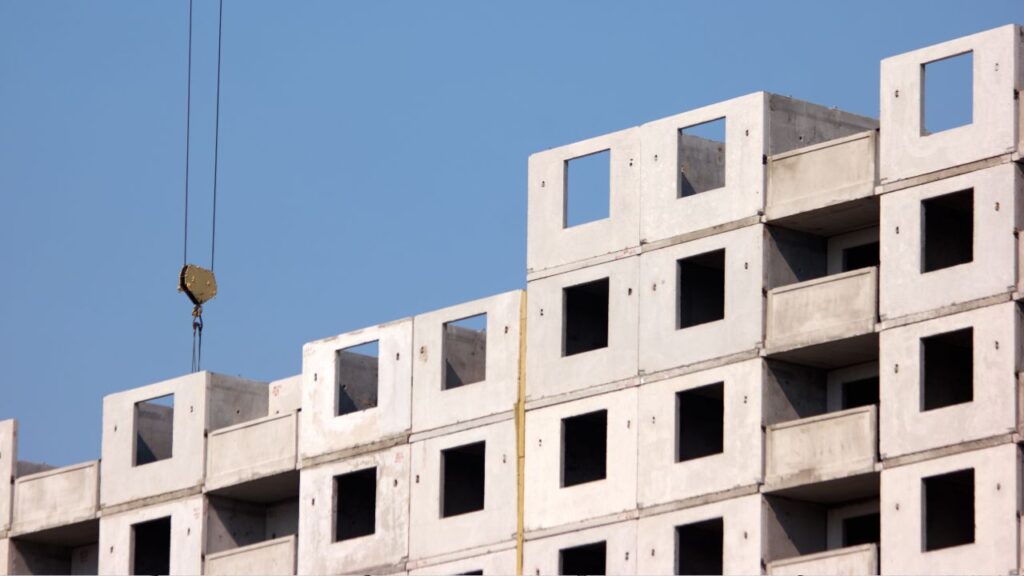
These examples demonstrate the effectiveness of soundproofing measures in concrete block buildings, as evidenced by the significant reduction in noise levels.
It is important to note that the acoustic performance of a building depends on various factors such as the quality of materials used, design considerations, and the expertise of professionals involved in the construction process.
Here’s an interesting fact: According to a study conducted by Silent Living Magazine, concrete block buildings can reduce noise pollution by up to 50%, making them an ideal choice for creating quieter living spaces.
Living in a concrete block building is like having a built-in mute button for the chaos outside – finally, a home where the neighbors’ karaoke skills won’t keep you up at night.
Residential Buildings
Soundproofing in residential buildings can drastically improve the quality of life for occupants. By reducing noise transmission, a peaceful setting is created inside concrete block homes.
Let’s look at some real-life examples:
Soundproofing Technique | Benefits | |
|---|---|---|
Example 1 | Acoustic Insulation | Minimizes external noise |
Example 2 | Double Glazed Windows | Blocks noise from outside |
Example 3 | Mass Loaded Vinyl | Reduces impact noise through floors |
Acoustic insulation, such as fiberglass or mineral wool, can be installed within the walls, ceilings, and floors. Double glazed windows with insulated frames help block external noise, like street traffic or loud neighbors. Mass loaded vinyl under flooring cuts down on unwanted impact noises from upstairs.
Did you know that small changes in room layout and furniture placement can have an effect on sound control? Furniture can be arranged to minimize reverberations and echoes, plus soft furnishings like curtains and carpets can be used to enhance the space’s acoustic properties.
Steve’s story is a perfect example. He had been living in a city apartment, constantly disturbed by street noises. To find peace, Steve invested in soundproofing measures. With acoustic insulation and double glazed windows, plus rearranging furniture to optimize sound absorption, Steve was finally able to enjoy moments of tranquility.
Soundproofing in residential buildings not only creates a pleasant atmosphere, but also contributes to healthier living. With many options available, people can customize their soundproofing approach to suit their needs, transforming concrete block dwellings into tranquil retreats.
Commercial Buildings
Commercial buildings such as office complexes and malls have a challenge with noise pollution from their concrete block construction. But, with the right soundproofing techniques, these buildings can be quiet places for work and relaxation.
These are some soundproofing methods:
- Wall Insulation: Put high-quality insulation in walls to reduce sound waves.
- Double Glazing: Double-pane windows create a barrier against external noise.
- Absorptive Panels: Place absorbent panels on walls and ceilings to reduce echo and reverberation.
- Air Sealing: Seal gaps, cracks, and air leaks to stop noise from entering or leaving the building.
- Sound-Dampening Doors: Acoustic doors with seals reduce sound transfer between rooms.
- Vibration Isolation: Isolate machinery vibrations to prevent them from spreading as noise.
For best results, use a combination of these methods. Experts can help to create a peaceful and productive environment.
Innovative approaches also exist. For example, natural elements like greenery and water features diffuse sound waves. Smart building systems with noise-canceling tech provide an exceptional soundscape.
The concept of soundproofing in commercial buildings has changed over time. During the early 20th century, architects faced the challenge of managing noise from city life. Through research and experiments, they found materials and techniques to combat noise pollution. This quest continues today, inspiring innovation in soundproofing.
Factors to Consider for Effective Soundproofing in Concrete Block Buildings
Factors to Consider for Effective Soundproofing in Concrete Block Buildings:
To successfully soundproof concrete block buildings, there are several key factors that should be taken into account:
- Building Design: The design of the building plays a crucial role in its soundproofing capabilities. Factors such as wall thickness and layout can significantly influence the transmission of sound. Thicker walls and a well-planned layout can help minimize sound transmission.
- Insulation: Proper insulation is essential for effective soundproofing. Insulating materials, such as acoustic panels or foam, can help absorb and block sound waves, reducing noise transfer between rooms or from external sources.
- Window and Door Treatment: Windows and doors are common sources of noise penetration. Double or triple glazed windows and solid core doors can help minimize sound transmission, enhancing the overall soundproofing of the building.
- Sealing Gaps and Cracks: Even the smallest gaps or cracks in walls, floors, or ceilings can compromise the soundproofing of a building. It is crucial to identify and seal any openings to prevent sound leakage.
- HVAC System: The heating, ventilation, and air conditioning (HVAC) system can also impact soundproofing. Choosing a system with a low noise rating and proper ductwork insulation can help reduce noise transmission through the HVAC system.
- Interior Design: Certain interior design elements can help improve soundproofing. Soft furnishings, such as carpets, curtains, and upholstered furniture, can absorb sound waves, reducing echo and reverberation in the space.
- Acoustic Panels: Installing specialized acoustic panels on the walls or ceilings can significantly improve soundproofing. These panels are designed to absorb sound waves and reduce reflections, creating a quieter environment.
By considering these factors, concrete block buildings can be effectively soundproofed, creating quieter living spaces that provide comfort and privacy to the occupants.
It is important not to overlook the significance of proper soundproofing in concrete block buildings. Failing to address sound transmission issues can lead to disturbances, decreased quality of life, and potential issues with neighbors. Ensure you create a peaceful and enjoyable living environment by implementing effective soundproofing measures in your concrete block building. Don’t miss out on the opportunity to transform your living space into a tranquil oasis.
Concrete block buildings: where you can finally enjoy your neighbor’s opera singing without actually hearing a note.
Building Design and Layout
Designing and positioning of rooms play a key part in soundproofing concrete block buildings. Keep loud areas such as kitchens, laundry rooms and entertainment spaces away from bedrooms and quiet areas. This can decrease sound travelling between different parts of the building.
Incorporate double-layer drywalls or add acoustic insulation within walls to enhance soundproofing. Select thicker walls for exterior-facing rooms for greater noise reduction.
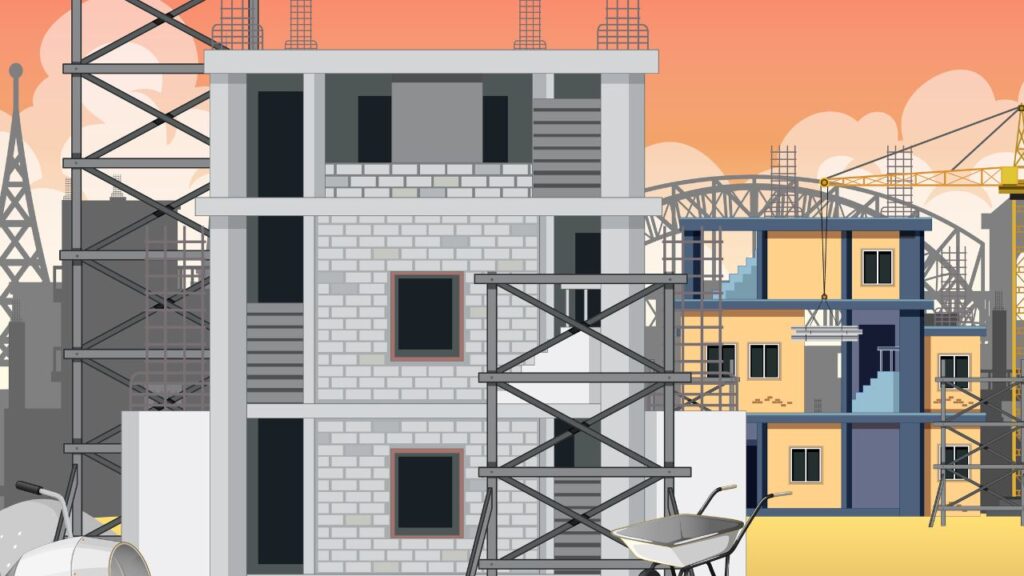
Solid-core doors with weatherstripping can reduce noise coming in or out of a space. Seal gaps around doors and windows to avoid sound leaks.
Design spaces with minimal shared walls to limit sound transmission between neighboring units. Create buffer zones like stairways or hallways between adjacent rooms.
Pick building materials that possess good sound-absorbing qualities, e.g. acoustic ceiling tiles, carpet flooring and dense curtains.
Pro Tip: Incorporate architectural details like alcoves or recessed wall panels. This will not only add aesthetic value but also reduce echo and reverberation within a room.
Materials and Insulation
To soundproof concrete block buildings effectively, the right materials and insulation must be taken into account. This is key in decreasing noise transmission from external sources or different parts within the building. Using suitable materials and insulation techniques can create a more tranquil and comfortable living/working area.
Below is a table that shows the different types of materials and insulation options for soundproofing in concrete block buildings:
Materials | Insulation Techniques |
|---|---|
Acoustic foam panels | Double-stud walls |
Mass-loaded vinyl | Resilient channel system |
Soundproof curtains | Blown-in cellulose |
Acoustic caulk | Fiberglass batts |
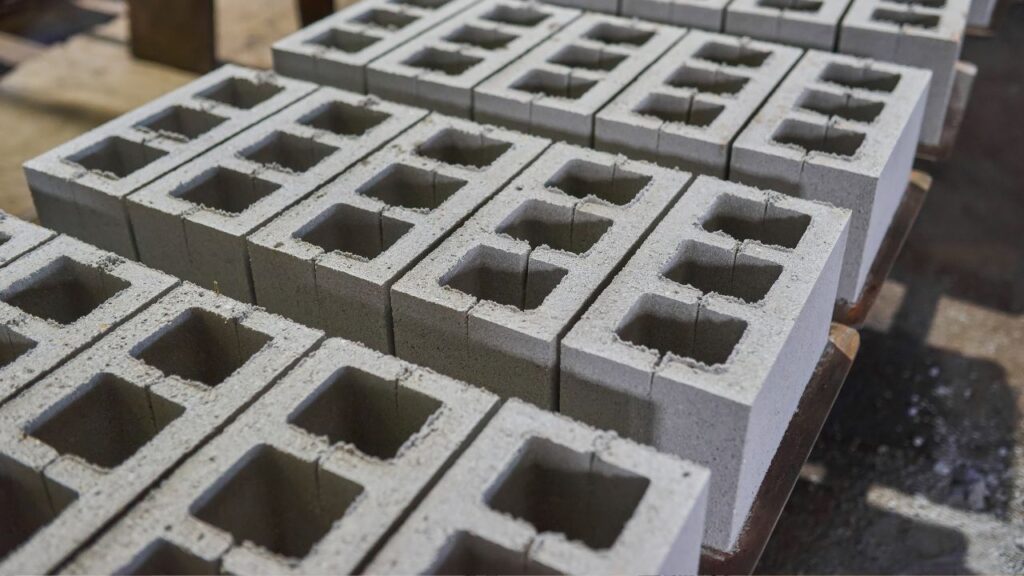
Acoustic foam panels can absorb sound waves effectively, lessening echoes and improving acoustics. Double-stud walls are two rows of studs with an air gap in between, that provide better sound insulation.
Mass-loaded vinyl barriers are perfect for blocking airborne noise thanks to their high density. They can be placed on walls, ceilings, or floors to reduce sound transmission.
Soundproof curtains bring aesthetic and functional advantages as they give extra mass and absorption to reduce noise pollution while adding visual appeal.
Using acoustic caulk around windows, doors, outlets, etc. can seal openings where noise can easily enter or escape.
To increase the effectiveness of these materials and techniques:
- Install them properly to guarantee peak performance.
- Locate weak spots where noise might enter before picking materials.
- Have a combination of soundproofing solutions for better results.
- Regularly inspect and maintain to check for wear or damage that could affect soundproofing.
By taking these into account, one can have exceptional soundproofing in concrete block buildings. Each suggestion works by handling certain aspects that cause noise transmission. Whether through absorption, blocking, or sealing, the aim is to build an environment that is peaceful and productive.
Window and Door Solutions
Windows and doors are key for soundproofing concrete block buildings. They are the main source of noise, so solutions should be used to reduce it.
Some solutions:
- Double-glazed windows: Two panes with an air gap for better insulation.
- Soundproof curtains: Specialized curtains that absorb sound waves.
- Acoustic seals: Applied around frames and edges to create an airtight seal.
- Laminated glass: Bonded layers make it more resistant to noise.
When installing, gaps should be eliminated to prevent sound transmission. Combining solutions is best, e.g. double-glazed windows with acoustic seals.
By using these solutions and proper installation, soundproofing in concrete block buildings can be improved.
Conclusion
Concrete block buildings are great for soundproofing! Their dense composition absorbs sound, blocking it from getting through walls. Plus, they keep the temperature consistent and reduce the need for HVACs. This means less noise from outside.
Durability is another benefit of these structures. They provide long-lasting sound insulation and require little maintenance. All in all, concrete block buildings give you a peaceful, serene environment.
Pro Tip: Double-glazed windows can help you get even more soundproofing!
Frequently Asked Questions
Concrete block buildings have excellent soundproofing properties due to their density and mass. The thick walls absorb and block sound waves, reducing noise transmission from the outside environment to a great extent.
Concrete block buildings can be more expensive to construct initially compared to other construction methods. However, the long-term benefits of reduced noise, energy efficiency, and durability can outweigh the higher initial cost.
Yes, concrete block buildings offer several additional benefits. They are highly fire-resistant, provide excellent thermal insulation, and have a longer lifespan compared to other building materials.
Absolutely! Soundproofing can be added to existing concrete block buildings through techniques such as adding additional insulation, applying sound-dampening materials to walls and ceilings, and sealing any gaps or cracks that may allow sound to penetrate.
While concrete block buildings provide many advantages, there are a few drawbacks to consider. They can be more difficult to modify or remodel compared to buildings made of other materials, and they may have limitations in terms of architectural design flexibility.
Process To Get Concrete Blocks Cost Estimate Report
Here I am going to share some steps to get your concrete blocks cost estimate report.
-
You need to send your plan to us.
You can send us your plan on info@estimatorflorida.com
-
You receive a quote for your project.
Before starting your project, we send you a quote for your service. That quote will have detailed information about your project. Here you will get information about the size, difficulty, complexity and bid date when determining pricing.
-
Get Estimate Report
We do concrete blocks cost estimating and prepare a detailed report for your project. At last you finalize the report and finish the project.
Google Reviews





